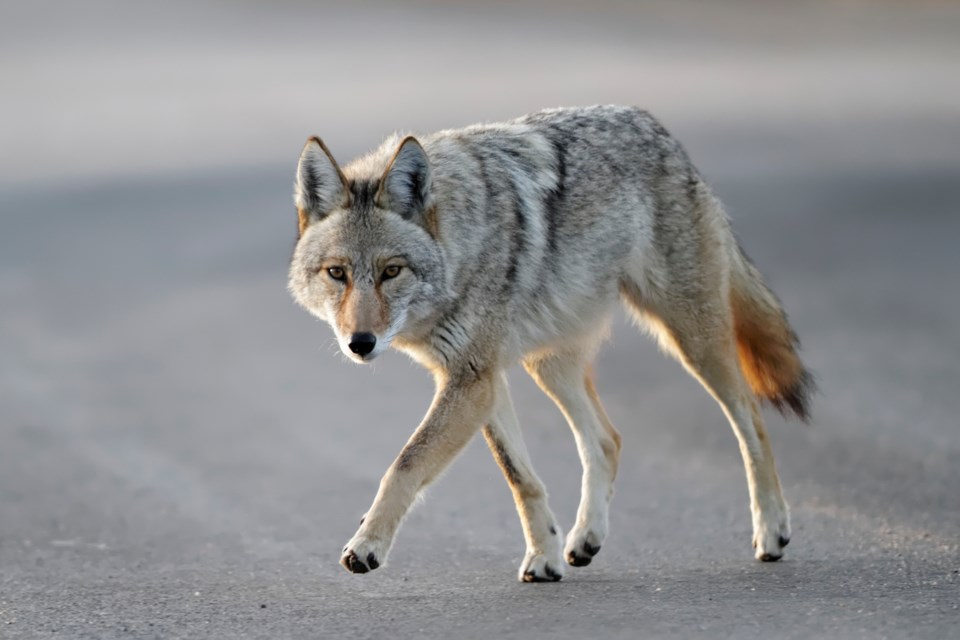Residents in Vancouver's Kitsilano neighbourhood are advised to stay vigilant and steer clear of a local park.
The B.C. Conservation Officer Services (BCCOS) shared a warning on Thursday (April 13) after receiving several complaints of coyotes biting dogs and following people in Trafalgar Park.
"Coyotes are very active across the Lower Mainland at this time of year," notes BCCOS.
The Vancouver Board of Parks and Recreation also warned locals last month of increased coyote activity as denning season comes into full swing. Residents were advised to keep pets on a leash, give wildlife space, and never leave or offer food which is punishable by a $500 fine.
"Coyotes are denning at this time of year and may act more boldly as they protect their denning sites. This could look like ‘escorting’ humans and pets away from their dens, standing their ground or acting more defensively if they perceive a threat," the Park Board tells V.I.A., advising people to "keep their distance from areas where coyotes are known to frequent and to please keep all pets on leash, under control and away from coyotes."
"Due to the increased activity, the BCCOS recommends people take precautions and consider avoiding the area with pets," continues the wildlife authority's warning.
The BCCOS will be monitoring coyote activity in the park and will "take enforcement action against anyone feeding dangerous wildlife," it notes.
Vancouver has seen a number of high-profile coyote attacks over the years, including dozens in the spring and summer months of 2021 in Stanley Park.
Locals who spot coyotes showing aggressive behaviour, approaching people, or people feeding coyotes are asked to call the RAPP line at 877-952-7277.





